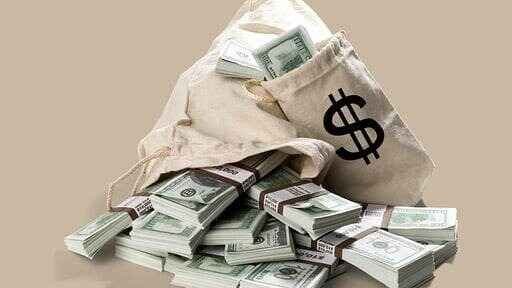Money is the medium by which earthly success is measured. How much is earnest money in Texas? The significant amount of earnest money depends on the answer to a critical threshold question raised in many real estate transactions across Texas and elsewhere.
The actual amount of the earnest money is negotiable depending upon local customs, market conditions, and the particulars of each transaction.
It proves the buyer has agreed to purchase any house or property. It may be submitted just after the seller accepts it.
Is earnest money according to the law in Texas? It would be best if you learned everything about earnest money in Texas. In Texas, earnest money is not set by law. These are negotiable terms of the real estate contract between buyer and seller.
In Texas, earnest money is generally between 1%-2% of the sales price in a typical residential transaction; however, this amount can vary depending on what the market will bear locally and other terms agreed to by contract. Earnest Money Requirements: Texas Nevertheless, typical standards and general rates exist within the state.
However, there are standard practices and customary amounts that prevail in the state.
What Is Earnest Money? How Much Is Earnest Money In Texas?
These earnest money laws are set in stone, much like the law of gravity. Sincere cash is a store made by the purchaser towards the price tag of a home. Image credit: Earnest money is the buyer’s down payment. Typically, the share of something is between 1% and three times until eventual completion against order value. Deductions of earnest money Earnest money is not a tax. Earnest Money: Why it exists and what is used for
Whether the actual value is $50,000 or more would be up to you and your buyer/seller.
The point is that certified checks can only be returned under good cause of an early cancellation.
· Buyers’ good faith money
Incentive for buyers to earn financially
·Compensate the seller
These are what is essential about earnest money in Texas.
Texas has a wealth of consumers with various tastes and preferences and varying degrees of latitude in terms of purchasing power. Sellers and buyers select their offerings and marketing strategies by targeting different state segments.
Purchasers offer earnest money to the seller when they decide to make an proposal on a property. This money is held back in escrow until the sale is completed.
In most cases, earnest money is a down payment or closing cost credit to the buyer who purchases as agreed upon.
The contract provides for the seller to retain all or part of a buyer’s earnest money if the buyer fails to complete the purchase without legal cause.
What is the Texas Earnest Money?
How much earnest money a buyer will offer depends widely on the local real estate market, the purchase of a wide array of properties, and the desires of both parties.
In Texas, it’s standard to expect earnest money between 1-3% of the purchase price for the house. For instance, on a $400k home the earnest money could be anywhere from $4k to $10K

However, the amount of earnest money in Texas also depends on various other factors. You need to master it. This information comes in useful; you can even profit from Texas! We Buy Homes Fast For Cash in Texas, But How High Should Earnest Money Be?
1. Market Conditions
In a seller’s marketplace, where additional buyers compete to buy the same belongings, humans are combating against each other. Increased Earnest Money: Providing a higher EMD makes your offer more attractive to the opposite aspect.
It proves to the seller that you are determined to buy this home. This technique can give you a slight advantage over other buyers.
2. Preference of Seller
When purchasing a home, the seller may have some ideas about how much of an earnest deposit is customary. They expect to see an offer.
The real estate agent’s advice — or their financial situation, which past experiences might have shaped.
In Texas, sellers’ tastes might naturally dovetail with rare opportunities. The issues of doing business in the Lone Star State.
3. Type of Property
Properties: Rightly, there are numerous types of earnest money offers, which may differ from one property type to another.
For example, transactions in luxury or commercial properties will often require larger amounts of earnest money than transactions in more modest residential properties.
4. Local Customs
Conventional earnest monies are the norm in some parts of Texas but may vary by buyer. What is typical varies by market; real estate who are know about the nearby market can helpEarnest Money: Local norms and market conditions dictate the amounts; business practices vary.
How much is Earnest money in Texas? Buyers must carefully consider the offer and ensure they are comfortable with such an amount before making an offer.
Present a firm offer with earnest money. Buyers should not offer more than they would be unsatisfied losing if the deal went south.
5. Purchase Contract
Along with the amount of earnest money to be deposited, the purchase contract should also set forth specific scenarios that will allow the escrow agent or closing attorney (whoever holds your funds) to release it and provide an immediate target.
Ensure the contract spells out who gets that earnest money and what is considered a cancellation of the sale. Address any modifications you made to the buyer’s obligations and schedules.
The terms cover the circumstances by which old-back money will be returned to the purchaser and any conditions outlined inside angry constructive cash. But depending on this, earnest money or cancellation fees may be applied towards closing costs.
6. Transactions in Texas
Earnest money is a big part of any real estate transaction in Texas. This shows a buyer that the purchaser is serious about buying their home.
There is no requirement to give a set amount, though the tradition has tended to be around 1-3 percent of the cost of buying your house. How Much is Earnest Money in Texas?
Locational sites based on market conditions and sellers’ indications
How Much to Offer: Depending on the type of property being purchased and local customs, you will want to consider carefully how much earnest money can be accepted. How Much Is Earnest Money in Texas?
Well-defined conditions on what should happen to the earnest money are given in writing, in English, and, of course, in a purchase contract to protect both sides of a transaction.
Conclusion
How much earnest money is in Texas? The average threshold for earnest money is about 1-2% of the purchase price, although this number can also vary depending on specifics in The real estate deal. Make sure to speak with an experienced real estate professional or attorney so that you understand the rules regarding earnest money in a Texas Real Estate Transaction.
FAQs
1. What is the average earnest money in Texas?
In Texas, the earnest money is negotiable but generally runs 1 -2% of the purchase price. This figure is, of course, up for negotiation among the consumer and supplier.
2. Is Earnest Money in Texas Refundable?
Whether or not earnest cash is refundable in Texas depends on the agreement terms. Earnest cash is commonly refunded if the sale falls through for a legitimate reason and the buyer has followed the terms of the contract. The dealer will preserve his earnest money if the client pulls out of that deal without a proper excuse.3. When is earnest money due in Texas?
The buyers should pay earnest money within a couple to 3 days of accepting the seller’s offer. These are all excellent faith gestures from the buyer to let the seller know they’re serious about buying their property.
4. Is Earnest Money Allowed to be Paid with a Personal Check-in TX?
In Texas, you can pay earnest money with a personal check. But sellers might decide they like you better if a good amount of your earnest money is in the form of a cashier’s check or wire when dealing with more significant amounts.
5. Is the Earnest Money Amount Negotiable in Texas?
In Texas, the earnest money is negotiable. Before signing the purchase and sale contract, you should discuss how much earnest money to pay.
